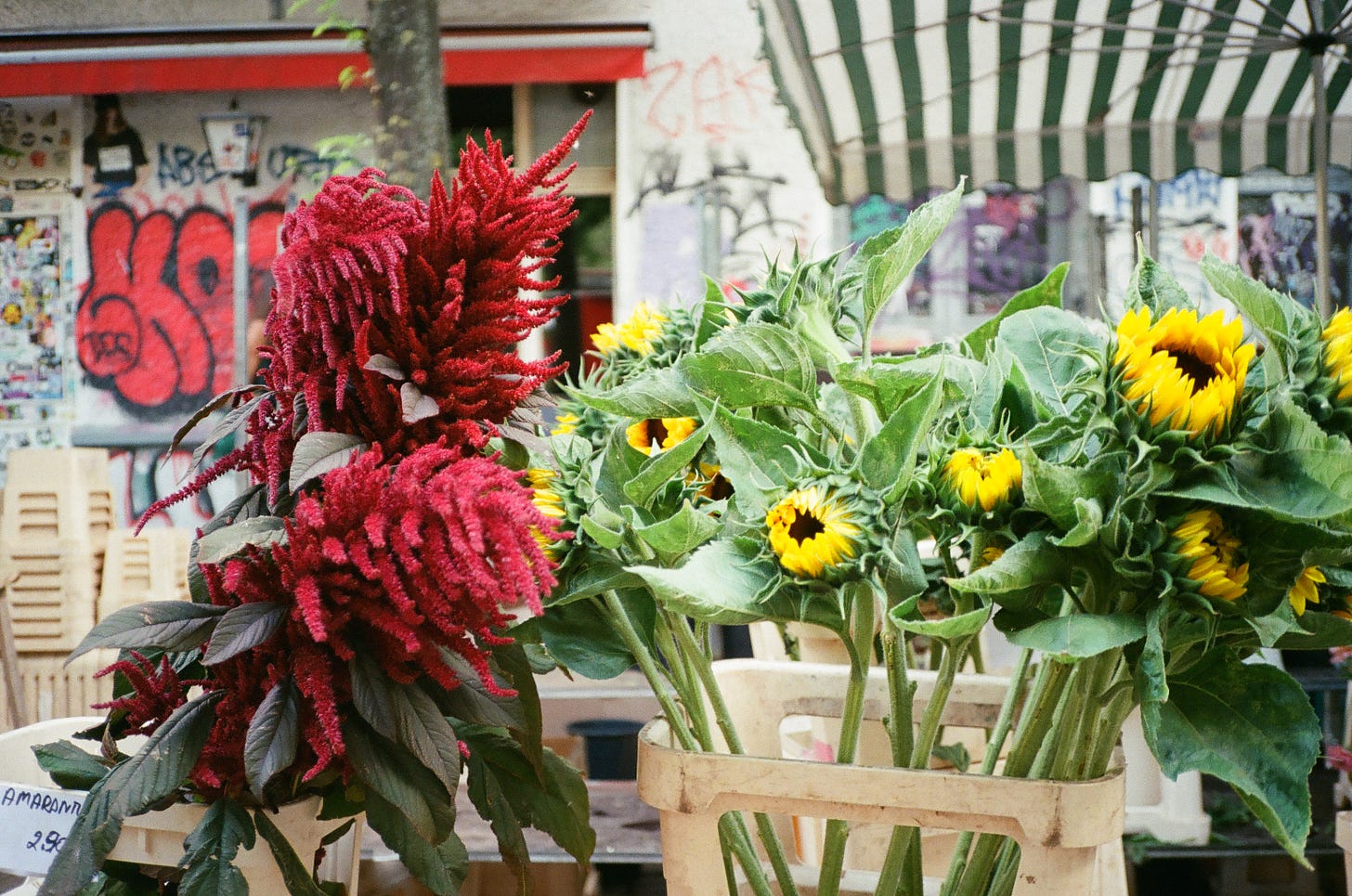Blind dates
Writing with each other in mind
I recently heard a Kurt Vonnegut quote in which he equates writing to going on a blind date.1 When you’re on a date with a stranger, you don’t know how they will react to you. But there are ways to give space for someone to feel comfortable and seen.
If a stranger is kind to me on a blind date, I would presumably think much better of them than I would about someone who is brilliant but makes me feel uncomfortable or badly about myself. As the analogy goes, a writer wants to put their unknown readers at ease. A writer wants their work to be welcoming and inviting, if not also interesting enough to cause their blind date to ask for a second meeting.
Last month I attended a conference at which the poet, writer, and performance artist Dasha Kelly Hamilton distinguished between facts and truth. The facts are what happened. The truth is the story we tell to make sense of it.
In an interview with The Creative Independent, Emily Segal explains her decision to shift her first book from nonfiction to auto fiction. As she amassed the facts of what happened during the period of her life she sought to document, the story didn’t make sense.
She says that it’s “funny writing auto fiction, because I started out just trying to write down stuff that happened in a sort of stylized way, but not a fictionalized way. But then, once I started trying to tell the story in a way that would be legible and engaging, I realized that it had to be fictionalized in order to make sense. It makes you think about how overdetermined and incomprehensible our ‘real life stories’ are, and it became kind of a puzzle. It’s like a puzzle that started with chunks of my real life as the first pieces, and then to make the rest of the jigsaw puzzle complete, I had to create fiction to make it hang together, because the real story just doesn’t.”
Part of being a good date, the kind that leads someone to want more, is writing a story that makes sense. To make sense, there has to be a semblance of truth—internal coherence—to it.
The distinction between genres sometimes feels specious. Memoir can veer into auto fiction. Events that take place in literary fiction can appear similar to what a reader knows about the author’s personal life. A poem is also a song.
At the end of the day, we aim to tell a story. Writing is one way to develop the truth that we need so that we can make sense of what happened in worlds both imagined and real.
*
As a writer, I try to be a good date by checking my intention behind the choice to share a particular piece. Writing plays many roles in my life, from therapy to professional advocacy to artistic expression. Not everything needs to reach other eyes.
There are times when I’ve hit send on a newsletter that came out too sharp, like a date who won’t stop complaining about her ex. In those moments, I’ve failed to prioritize my reader. I’ve hastily hit publish to seek selfish gratification instead of from a genuine desire to connect.
My guideline is to be kind. This work is a privilege. I get to send letters of love and curiosity and am so often met by soft arms.
Sharpness can be channeled into crafting the facts. I enjoy art whose structure feels precise, like it was made with detached and near-clinical calm. Similar to Segal, I think of my writing in all genres as logic puzzles wrapped in beautiful clothes.
Like a mannequin doll, the puzzle needs to make sense to form a coherent whole. But the clothing is what draws the reader in. The clothing is the narrative, tone, and the truth as story. The clothing is the art.
Good clothes make us feel comfortable, attractive, and like ourselves. Any four-year-old knows it’s a privilege to choose how to dress.
On a blind date, I’d probably wear something classic. Well-fitting pants and a playful shirt or sweater. I want to put my best foot forward without acting a part.
Because who knows? I might just wear the same thing on our twentieth date too. The one where we go canoeing and eat huckleberry pie as mist rises off of the still-warm water. Across the lake, a loon surfaces. I look down and you take my hand.
Until then,
Julia
P.S. honorable mention to this article by Dan Sinykin about the rise and fall of literary fiction, linked by passerby. A very good read.
P.P.S. The latest issue of Year Round Queer features a poem whose first draft I debuted on Substack. I believe you can buy the zine here.
The New York Times, via Austin Kleon .




semblance of truth- internal coherence, articulative! Keep penning your thoughts!
“My guideline is to be kind”... these words really resonated with me. I relate to the hastily published pieces and I too wrestle with what to publish and what to save for myself or to rework into something softer. Thanks for sharing these words.